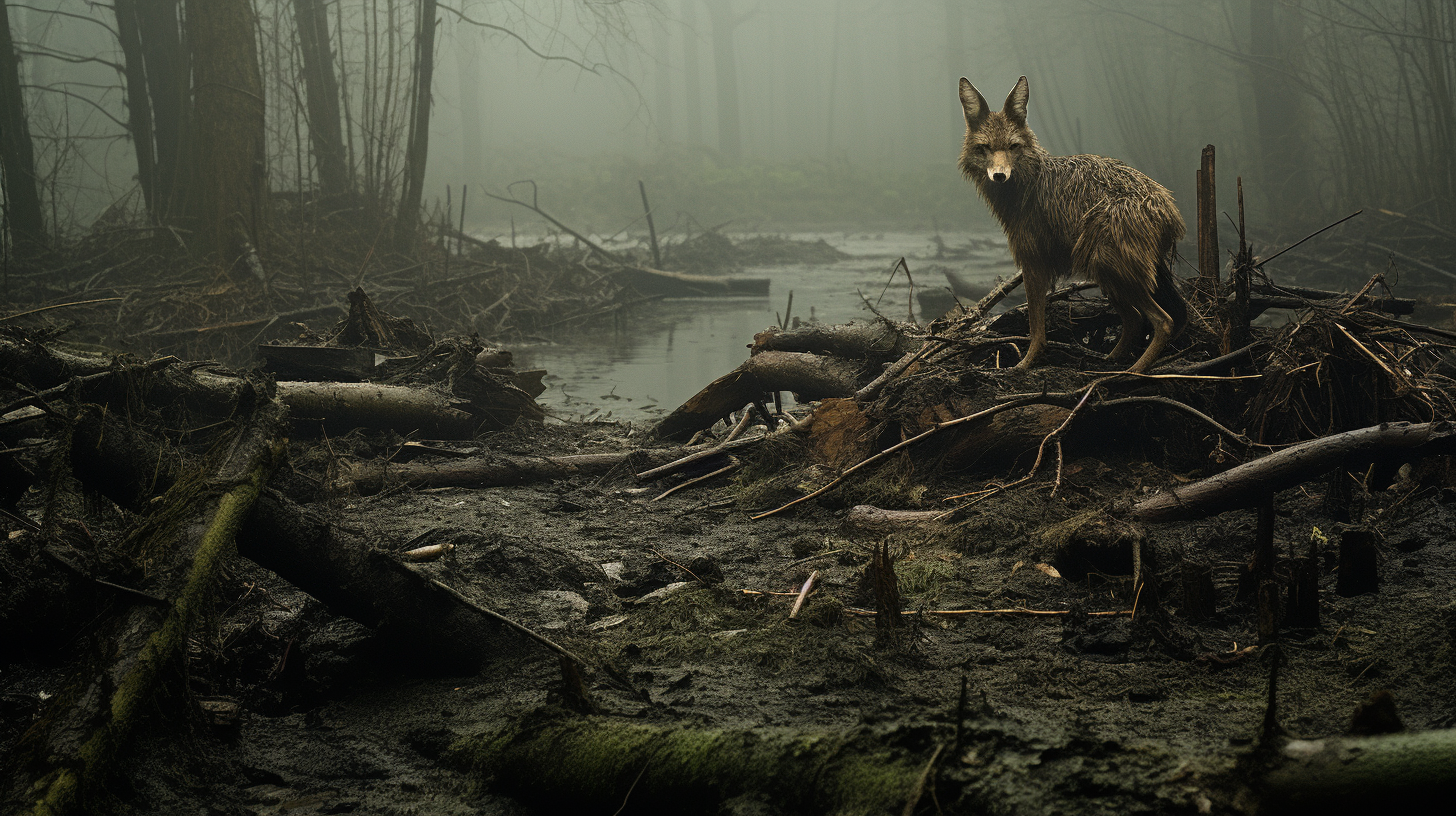Amidst the barren plains that stretch beyond the horizon, whispers carry the weight of a once-verdant legacy. Here, standing on soil as parched as the pages of history, we remember the lush canopy that shielded the earth from the relentless sun. The forests, which were vibrant tapestries of biodiversity, are no longer. They exist now only as echoes in the silence—a requiem for the abode of wildlife, for the sanctuary they provided is lost to the annals of avarice and environmental neglect.
These vestiges, once the cradle of biodiversity, now serve as stark reminders of our faltering stewardship. Birds that once danced across the sky, weaving between the foliage, now find solace in the fragmented forests of our own making. We listen to their songs—no longer a symphony of life, but rather a dirge clinging to the remnants of their decimated homes. Effects of deforestation and climate change are not tales of distant lands or future warnings; they are the vivid, grim reality of the present dystopia.
In the absence of towering trees, the soil, stripped of its protectors, succumbs to erosion; it cascades into the rivers, clouding the waterways that sustain both wildlife and human populations. The land is scarred with the wounds of industrialization—a lattice of despair turning the earth inside out, excavating not only resources but the soul of nature itself. A continuous quest for progress has cast a permanent twilight upon our days.
Sometimes, through the desolation, a glimmer of resilience surfaces. A lone sapling, daring to breach the desolate landscape, becomes a symbol not of hope—for that notion is far removed from our grasp—but of the enduring spirit of life that manages to persist even against the insurmountable. In these small acts of defiance, one might see the unwavering tenacity of nature, a tenacity met with the indifference of those who promised to be its guardians.
Amongst the silence, one can discern the whispers of wildlife, a subtle hum that lingers as a challenge to our detachment. These are not the sounds of abundance but of scarcity, not the bustling chatter of an ecosystem at its peak, but the hushed tones of desperation. The critters that scuttle in the underbrush, the insects that forage among the debris—they compose the lingering murmur of a world we have muted.
This bleak tableau, which we have masterfully painted, holds a mirror up to humanity. The reflection is not one of beauty or pride but of the monstrous outcome of our collective neglect. As the planet wilts under the strain of our choices, the climate disasters we facilitated emerge as the true harvest of our transgressions. The ghosts of the forests hang heavy in the air, a shroud over the future that could have been.
To walk through the remnants of verdant wonderlands is to traverse a maze of memory and loss. The air feels heavier with the silence of the absent life, with the choked breath of Earth itself. And yet, in the periphery of this desolation, life persists in whispered tones. The wildlife, clinging to existence, has adapted to occupy the crevices of our ruination. Their resilience is a paradox against the backdrop of their fading existence.
These Whispers of Wildlife Where Forests Once Stood are the last verses of an elegy to the wild. Let these words serve as the inscription on the tombstone of nature’s grandeur, and may they stir in the hearts of those who read them the urgency of change that has long been overdue. For though the narrative is imbued with the shadow of despair, it is within our power to ensure that these whispers do not fade into unchallenged silence.
